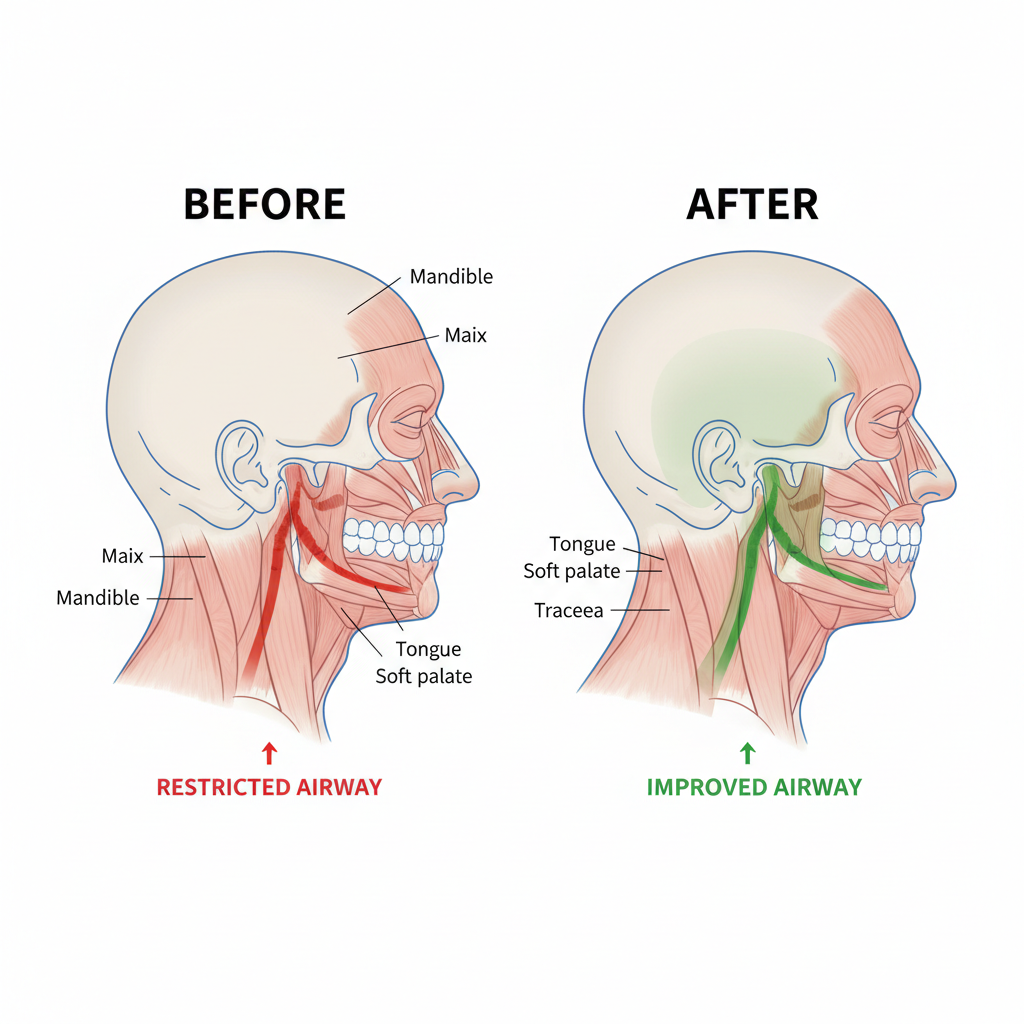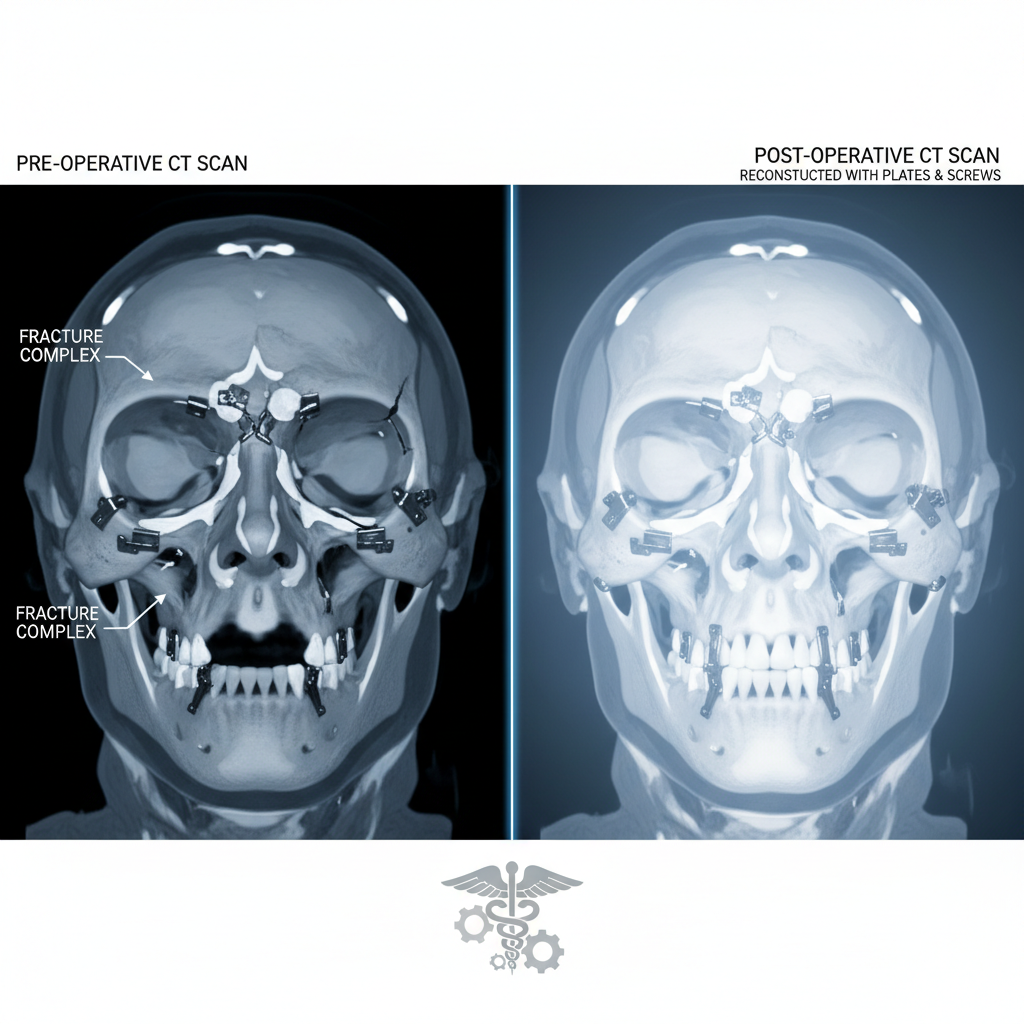The human face, jaw, and neck are intricate structures, vital for everything from speaking and eating to expressing emotion. When disease, injury, or developmental issues affect this region, the impact can be profound. This is where the specialized field of oral and maxillofacial surgery plays a critical role. It is a unique surgical specialty that bridges the gap between medicine and dentistry to address complex conditions affecting the head, neck, face, and jaws. More than just a cosmetic field, it restores function, corrects deformities, and significantly improves a patient’s quality of life.
This article will explore the scope of maxillofacial surgery, highlight common procedures performed, and explain its essential function within the broader healthcare landscape. Understanding this field is key to appreciating its power to reconstruct, restore, and rejuvenate.
What is Maxillofacial Surgery?
Oral and maxillofacial surgery is a surgical specialty focused on diagnosing and treating a wide range of defects, injuries, and diseases involving the hard and soft tissues of the oral (mouth) and maxillofacial (jaws and face) region. According to the American Association of Oral and Maxillofacial Surgeons (AAOMS), specialists in this field are equipped to manage everything from dental implants to reconstructive facial surgery. A Maxillofacial Surgeon is a highly trained specialist who completes extensive education, including dental school and a hospital-based surgical residency program. This dual training provides them with a comprehensive understanding of both skeletal and soft tissue anatomy, making them uniquely qualified to manage conditions in this complex anatomical area.
The scope of practice is broad, encompassing procedures that range from routine tooth extractions to complex facial reconstruction. These surgeons work in various settings, including hospitals, private practices, and academic centers, often collaborating with other medical professionals like orthodontists, plastic surgeons, and oncologists to provide comprehensive patient care (NIH – MedlinePlus).
Common Procedures in Maxillofacial Surgery
Maxillofacial surgeons perform a diverse array of procedures. While some are common and straightforward, others are highly complex surgeries that can be life-altering for patients.
Corrective Jaw (Orthognathic) Surgery
One of the most transformative procedures is orthognathic surgery. This surgery corrects irregularities of the jaw bones to realign the jaws and teeth, improving their function and appearance. It is often recommended for individuals with:
- Chewing and swallowing difficulties: Misaligned jaws can make biting and chewing inefficient or painful.
- Chronic jaw or TMJ pain: Correcting the bite can alleviate stress on the temporomandibular joint (TMJ).
- Obstructive sleep apnea: Advancing the upper or lower jaw can open the airway, providing a lasting solution for some patients.
- Facial imbalance: The procedure can improve facial aesthetics by correcting issues like a protruding lower jaw or an open bite.
According to the American College of Surgeons, orthognathic surgery not only enhances function but also boosts self-esteem by creating a more balanced facial profile. You can read more on the AAOMS overview of corrective jaw surgery.
Facial Trauma Reconstruction
Accidents from sports injuries, vehicle collisions, or falls can result in significant facial trauma, including fractured jaws, broken cheekbones, or orbital (eye socket) fractures. Maxillofacial surgeons are experts in treating these injuries. Their primary goals are to restore the facial structure and function while minimizing cosmetic deformities. This involves precisely realigning and stabilizing fractured bones using plates and screws, ensuring that the patient’s bite and facial symmetry are restored as accurately as possible. Learn more from Johns Hopkins Medicine on facial fractures.
Temporomandibular Joint (TMJ) Disorder Treatment
The TMJ is the hinge joint connecting the jaw to the skull. Disorders of this joint can cause chronic pain, clicking or popping sounds, and limited jaw movement. While initial treatments are often non-surgical (e.g., physical therapy, bite guards), a maxillofacial surgeon may intervene when conservative measures fail. Surgical options range from arthroscopy, a minimally invasive procedure to examine and treat the joint, to total joint replacement for severe, degenerative cases. Additional information is available at NIH MedlinePlus: TMJ Disorders.
Dental Implant Placement and Bone Grafting
Maxillofacial surgeons are highly skilled in replacing missing teeth with dental implants. Implants provide a durable and natural-feeling foundation for crowns, bridges, or dentures. In cases where a patient has insufficient bone in the jaw to support an implant, the surgeon can perform a bone graft. This procedure involves transplanting bone from another part of the patient’s body or using a synthetic material to rebuild the jaw, creating a solid base for successful implant placement. For more details, see the Mayo Clinic overview of dental implants.
Cleft Lip and Palate Surgery
Treating congenital conditions like cleft lip and palate requires a multidisciplinary approach, with the maxillofacial surgeon playing a central role. These surgeons perform a series of operations, often starting in infancy, to close the gap in the lip and roof of the mouth. The goal is to restore normal function for eating and speaking and to create a more normal facial appearance. Subsequent surgeries may be needed to address related issues with the gums, jaw alignment, and nasal structure as the child grows. To learn more, visit the Children’s Hospital of Philadelphia information on cleft lip and palate and the CDC overview.
The Broader Impact on Patient Well-Being
The work of a maxillofacial surgeon extends far beyond the operating room. By addressing functional and aesthetic concerns, these specialists have a profound impact on a person’s overall health and psychological well-being. Studies have shown that improvements in facial function and appearance positively influence self-esteem and social interactions (source: National Institutes of Health).
Restoring the ability to chew properly improves nutrition (Mayo Clinic on Jaw Surgery). Correcting a speech impediment allows for clearer communication (American Speech-Language-Hearing Association). Alleviating chronic pain from TMJ disorders enhances daily comfort (Johns Hopkins Medicine: TMJ Disorders). Furthermore, reconstructing a face after trauma or correcting a congenital deformity can restore a person’s sense of identity and confidence (Cleveland Clinic on Facial Reconstruction). Many patients report significant improvements in their social interactions and mental health following successful surgery (BMJ—Quality of Life after Maxillofacial Surgery).
This specialty is fundamental to modern healthcare because it addresses issues that are central to our human experience—how we eat, speak, breathe, and present ourselves to the world. It is a field built on precision, expertise, and a deep commitment to improving lives.





